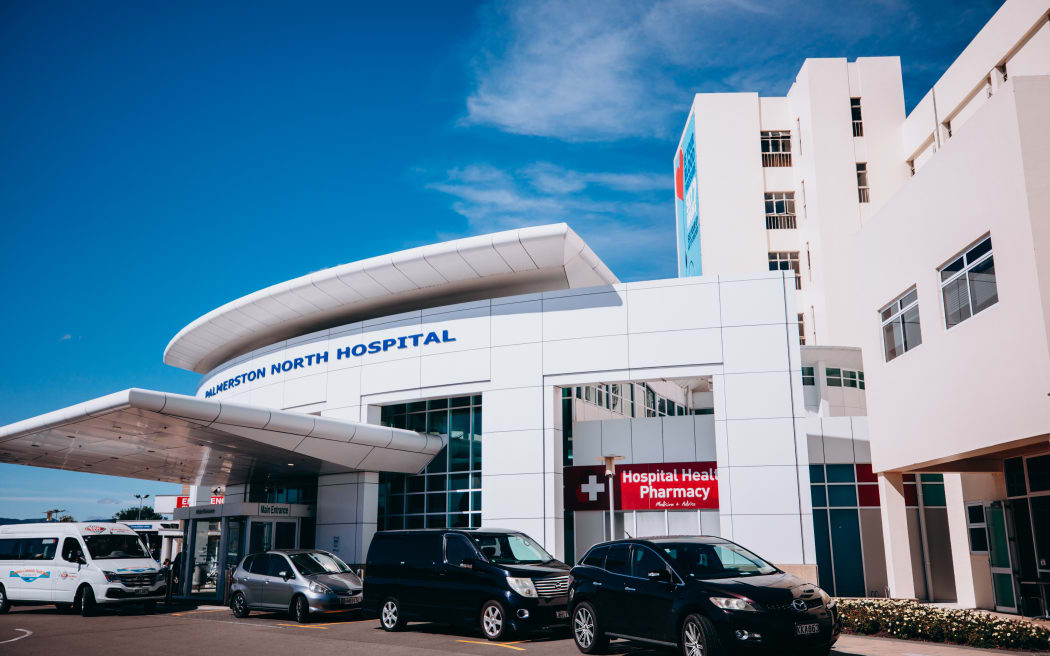
Dr Leon Nixon is the lead clinician for the opioid substitution treatment service at Palmerston North Hospital, but he is only on site one week in four. Photo:
A senior doctor is getting flown in from Australia to the Palmerston North Hospital for one week out of every four, working the remaining three remotely.
Te Whatu Ora will not discuss how much this costs, but says the senior addictions clinician position the doctor fills is difficult to recruit for.
And sector groups agree - saying it highlights the shortage of specialist staff.
Dr Leon Nixon is the lead clinician for the opioid substitution treatment service at Palmerston North Hospital, a position he filled in the middle of last year.
But he is only physically present one week in every four.
Te Whatu Ora would not say what the travel and accommodation costs were, nor if it paid the bill. It also declined to say if the arrangement was permanent, saying it did not publicly discuss personal employment contracts.
National Association of Opioid Treatment Providers co-chairperson Dr Sam McBride said the situation was the result of a shortage of expertise.
"Ideally, we'd have someone who's located within the area and is able to provide a better, more consistent cover," he said.
"However, these are the sorts of compromises that are having to be made to ensure that services continue to function."
The arrangement could work, McBride said.
"When you've got a limited range of specialists, you need to think how you can cover gaps, as it were.
"In this situation it seems like a pretty pragmatic response given it's a pretty experienced clinician, who's well regarded in the [alcohol and other drugs] field."
That field was part of the addictions speciality, which McBride said could often play second fiddle.
"It's a small, niche area. It tends to be vulnerable in that regard. It's often overlooked by planners in terms of sexier or more high-profile areas.
"It often suffers sitting alongside mental health, which tends to take more priority.
"There are particular issues in that. We've got a lack of training pathways for specialists."
Addiction specialists hard to recruit
Measures were in place to try to attract and retain addictions staff, but more could be done to make sure services had appropriate expertise on hand, McBride said.
"I think regional services, which tend to be isolated, are particularly vulnerable, so I think we really need to think of what sort of roles we can perform and support across a regional perspective. Some of that work is happening, but we need to get better at it."
Addictions treatment work was important, McBride said.
"If you looked at the cost of addiction - we're talking about opioids in this regard - but if you looked at the cost of addictions through alcohol and other drugs, alcohol in particular, there's a significant health impact. [It's] not just on the individual, but communities and families and elsewhere."
Association of Salaried Medical Specialists executive director Sarah Dalton said it was more common to have locums flying in and out than permanent hospital staff.
"Obviously, our preference is people are able to broadly live and work in the same sort of place as much as possible.
"Although, we do understand with Te Whatu Ora having a national service there may be some desire to have some specialist doctors or dentists travel to some specific locations to make sure that people get the care that they need.
"That's less disruptive than having patients travel, but that's something that generally requires specific arrangement in place."
Specialists not being onsite all the time could work, but that depended on factors such as the field they worked in and the hospital's set-up, she said.
"There are a number of things that can be done remotely in terms of prescribing, referrals, phone calls, Zoom - those kinds of things.
"But, there's a whole lot of other stuff around the teaching of junior doctors, around the support of colleagues, around departmental planning, around audit and risk - those kinds of things that contribute to the best running of services that do suffer when you do not have a full complement of staff onsite and available."
Dalton said if specialists continued to head overseas for better pay and conditions, arrangements such as the one at Palmerston North Hospital would continue as health providers had few other options.
"There are a number of services in New Zealand, certainly including mental health, that are so radically understaffed, and have been radically understaffed for so long, that I think arrangements are being agreed now that perhaps might not have been in the past, just to ensure that there is some cover."
Te Whatu Ora MidCentral mental health and addictions services clinical executive Dr Alison Masters said it was granted approval by the director of mental health for Nixon to take the Palmerston North role.
She said there were few addictions specialists in New Zealand, and Nixon had 40 years' experience, including nearly 30 in addictions medicine.
Such positions were difficult to recruit given the experience and expertise required, she said.
Te Whatu Ora chief people officer Andrew Slater said the organisation did not have a policy on the use of international specialist staff, aside from the requirement they were authorised to work in New Zealand.
"The use of international specialist medical staff is undertaken on a case-by-case basis and driven by local need where all other options to fill the position have been exhausted," he said in a statement.
"It is expected these measures would only be used in exceptional circumstances and managed locally."





